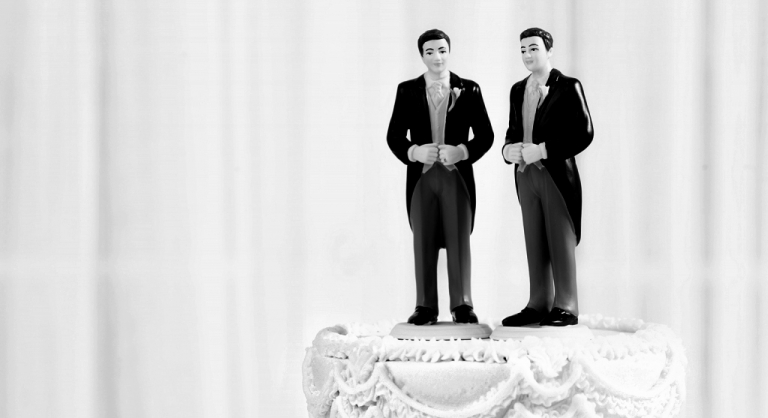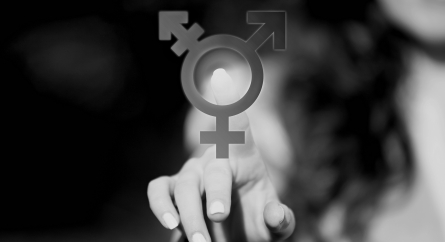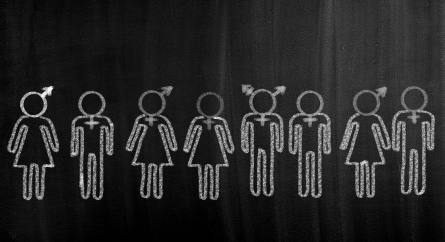Let Them Eat Cake! Religious Beliefs or Discrimination?
The competing interests of an individual’s First Amendment right to religious freedom and an individual’s right to be free from discrimination will be addressed by the Supreme Court of the United States (“SCOTUS”) in the fall. A couple who married in Massachusetts, but were celebrating their nuptials in Colorado, contacted a bakery to bake them a wedding cake for their wedding reception. Masterpiece Cake Shop Ltd. refused to provide a wedding cake for this same-sex couple (as well as others as a matter of “policy”), after the baker cited his religious belief that marriage is between one man and one woman. As a result of the denial of services, the couple filed a complaint with the Colorado Civil Rights Division. It found that Masterpiece Cake Shop Limited violated Colorado anti-discrimination laws by refusing to provide cakes for same-sex weddings or celebrations. As a result of this court action, the owner faces penalties if he continues to refuse services to same-sex couples. The baker claims that requiring him to make wedding cakes for same-sex couples violates his religious beliefs. Conversely, the other side contends that individuals should not be discriminated against and denied services based on their sexual orientation. The Supreme Court of the United States will hear the case this fall, which would likely result in a decision at some point in 2018.
In another case involving the competing interests of being free from discrimination and the right to religious freedom, a three-judge panel of the United States Court of Appeals for the Fifth Circuit lifted an injunction that prohibited Mississippi’s 2016 Protecting Freedom of Conscience From Government Discrimination Act from taking effect. This law, HB 1523 creates governmental protections for sincerely held religious beliefs or moral convictions for people, religious organizations, and private associations, which empowers these individuals to refuse service to LGBTQ individuals based on religious convictions. There are three sincerely held beliefs or convictions that this Act seeks to protect: marriage is the union of one man and one woman; sexual relations are properly reserved for marriage; and male or female refer to an individual’s biological sex as determined by anatomy and genetics at the time of birth. This law prohibits the government from taking any action against a religious organization that declines to solemnize a marriage or provide services relating to a marriage ceremony, employment decisions relating to that sincerely held religious belief and decisions relating to the sale, rental, occupancy of any dwelling or home under its control. The Fifth Circuit panel held that the challengers could not demonstrate an “injury-in-fact,” although it did not foreclose the possibility of such a showing at a later date. Certainly, as individuals are denied services based on claims of religious beliefs, future challenges to this law will certainly be in the pipeline.
Not all states are seeking to promote religious freedoms over anti-discrimination laws. In Michigan, a farmer is suing the City of East Lansing over its anti-discrimination policy. His farm, which is not located in the city, refuses to host any same-sex weddings because of his family’s belief that marriage is between one man and one woman. All participants in the city’s farmer’s market requires all vendors to comply with its civil rights ordinances while at the market and also as a general business practice. As a result of the farmer’s refusal to allow same-sex weddings, the farm has been excluded from the city’s farmers market, although he participated the prior six years. The farmer challenges the city’s actions, claiming his religious views are being discriminated against by the imposition of the requirement he follow an ordinance that bars discrimination on the basis of sexual orientation, gender identity, and expression. The Complaint that was filed on May 31, 2017 on behalf of Country Mill Farms, LLC and Steven Tennes against the City of East Lansing, Michigan.
These actions will bring many questions to be determined by the courts. Is discrimination against a class of people Constitutional if it is based on a person’s sincerely held religious beliefs? Does an individual’s religious belief empower him to discriminate against others? If so where does discrimination cross the line where religious freedoms will not be protected? Some of these cases involve policies of companies that are incorporated. While SCOTUS has recognized a limited claim of religious belief for a closely held corporation, it has not addressed whether that corporation is protected by the First Amendment in exercising that religious belief by refusing to provide services to a group of individuals, such as the LGBTQ community.
Categorized: Discrimination, LGBTQ Rights
Tagged In: Fifth Circuit, Marriage, Religious Freedom, Sexual Orientation, Supreme Court of the United States








